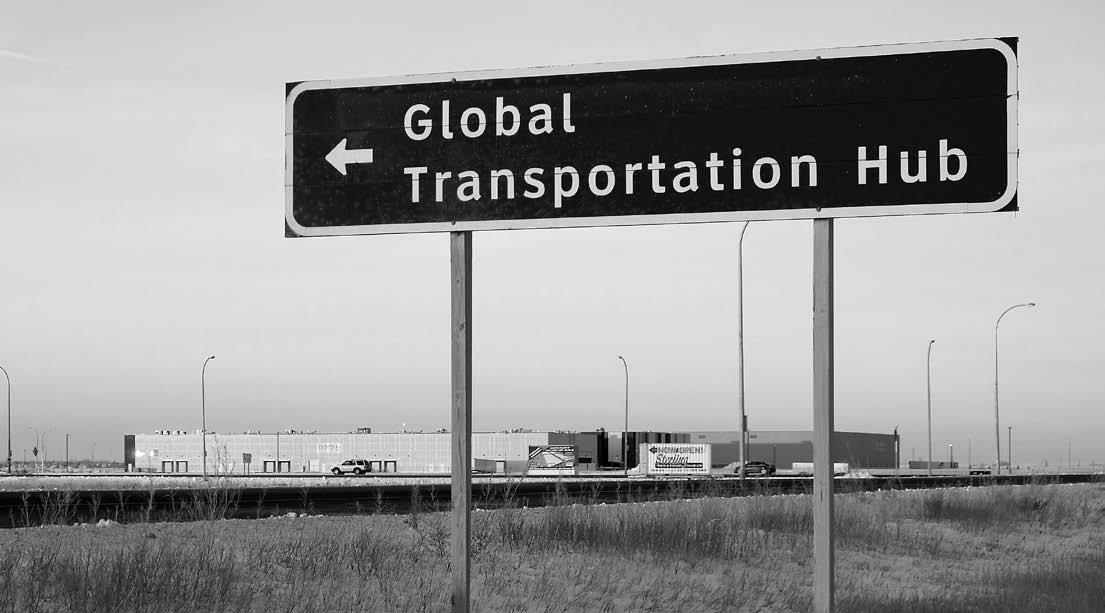
3 minute read
Provincial government waste and mismanagement
from PSGE Bulletin
How did the province get into this financial mess?
Provincial government waste and mismanagement
GTH land scam – The provincial government paid three times more than the appraised value for land near the Global Transportation Hub (GTH). Millions in taxpayers’ money was wasted buying land at inflated prices. Somewhere along the line, millions ended up in the pockets of land speculators, including a Sask Party donor and an Alberta business associate of former GTH Minister Bill Boyd. The GTH itself – The Hub wasted taxpayers’ money by paying out almost as much to settle lawsuits over land purchases as it spent on actually buying the land it occupies. Land purchases cost $13 million and legal settlements totaled $11 million. The GTH is $46 million in debt and growing, and interest charges on its loan exceed $1.4 million last year.
Over-priced consultants – Government is handing out hundreds of millions to costly consultants. Spending on consultants rose by 228% between 2009 and 2014. The Ministry of Highways spent 400% more on outside consultants. Lean – $40 million was handed to a U.S. consultant to improve efficiency in health care. After the problem-ridden program was cancelled early, a University of Saskatchewan study found that the province spent $1,511 for every dollar saved by Lean. Liquor privatization – Tens of millions in revenue will be lost each year, according to an independent financial analysis – the fallout from privatizing liquor sales. The main reason: government dropped the mark-up to give private retailers a wider profit margin. Payouts to unsuccessful corporate bidders – In 2016 alone, the province paid $5.6 million in honorariums to corporations who were the unsuccessful bidders on P3 infrastructure projects. Regina Bypass – Nearly $2 billion was handed to a French multinational corporation to build a bypass around Regina. An Alberta company is being paid an undisclosed amount to plow and sand the 60 kms of highway for 30 years.
More MLAs – The government added three new MLAs to the Legislature in time for the 2016 election. The cost to taxpayers: with salaries and expenses, close to $700,000 a year. Premier’s political staff – Seven members of the premier’s inner circle earned a total of $1.2 million in 2018-19 – an average salary of $172,000. Smart meters – After spending $37 million on smart meters, SaskPower was forced to remove and replace all 105,000 of the potentially-defective meters, at a cost of as much as $15 million more. Carbon Capture – SaskPower was forced to pay almost $20 million in penalties to Cenovus Energy, when the new $1.5 billion Boundary Dam carbon capture and storage plant failed to capture enough carbon to sell to the energy company. Crown Privatization – In 2013, the government sold off 69% of Information Services Corporation, the Crown that operated the land and business registries. Before privatization, the Saskatchewan treasury typically received 90% of ISC’s net income; now it receives 29%. In just the first six years of privatization, Saskatchewan forewent $97 million in lost revenue. At this rate, by 2023, the province will have lost more in foregone revenue than it earned from the sale of ISC shares. Cannabis profit giveaways – Saskatchewan is the only province in Canada to hand over both the wholesaling and retailing sides of the cannabis industry to private companies. Rather than let a publicly-owned entity collect profits for Saskatchewan people, the proceeds from a market worth an estimated $250 million per year will instead go to a few owners and shareholders — with small local businesses disadvantaged by a model that favours big corporations.
1 Dr. Jason Childs and George Hartner, “An Effective Retail and Distribution Model for Recreational Cannabis.” Johnson Shoyama Graduate School of Public Policy, December 2017.
Workers deserve rights restored
“The government has granted itself the power to control the bargaining process. This gives it the ability to erode the economic and workplace gains we have made over the years,” according to Nowoselsky. “We need to challenge the government on every front available to us. Legal challenges are one avenue,” he says. “But we should remember that government workers are also citizens with democratic rights. Let’s make sure we hold the politicians accountable for their actions in other forums as well. Tell the election candidates you want your rights restored,” says Nowoselsky.



